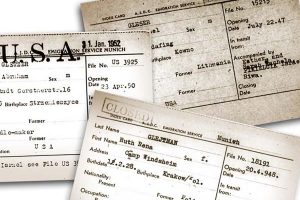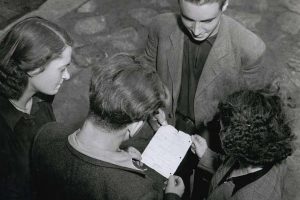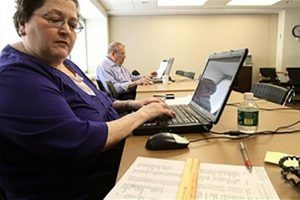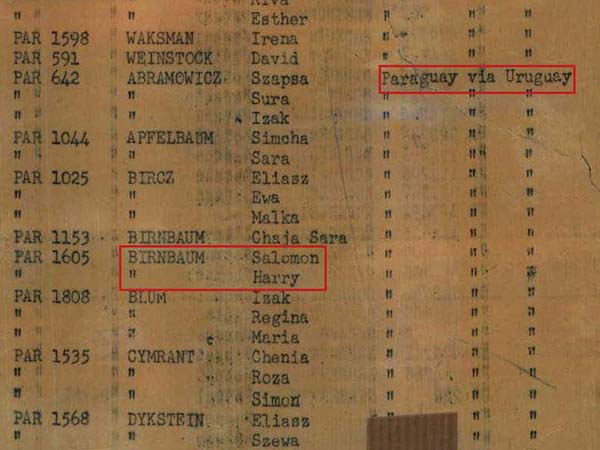
Found in the Names Index
Finding family while volunteering for the JDC Archives
As a volunteer for JDC, I have spent considerable time indexing a list of departures of Holocaust survivors from Europe in 1948. Most of these survivors were going to countries in South America, Australia, or Canada. As I was working, I came across a Salomon Birnbaum going to Paraguay. Bells rang—I have a cousin whose father was from Uruguay; her father’s father was named Salomon Birnbaum, and I knew that Salomon was a survivor.
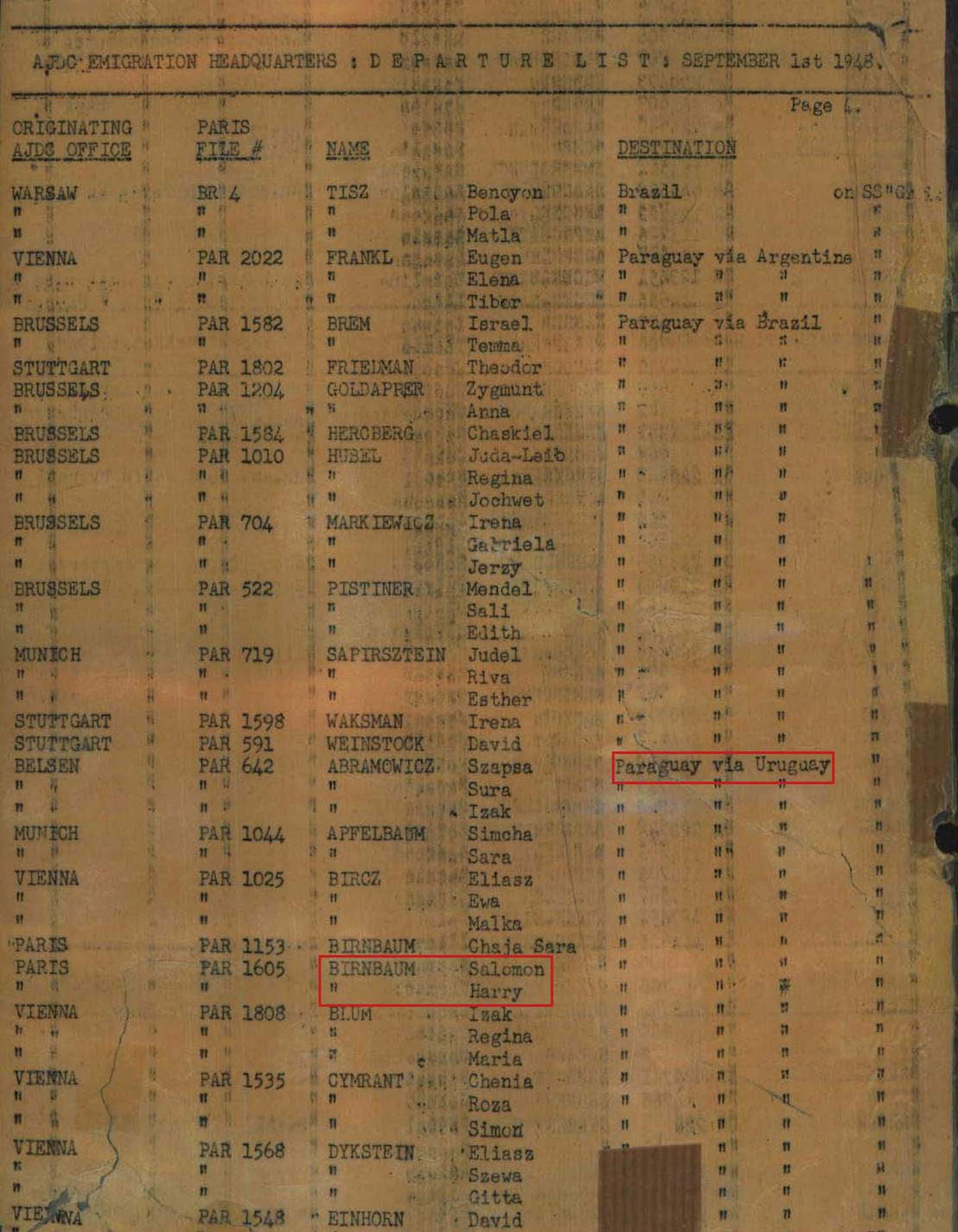
Page from the 1948 list of departures from Europe showing Salomon and Harry Birnbaum with Paraguay as their destination.
Digital image received from the Arolsen Archive.
So, I wrote to my cousin Deborah and asked her about her grandfather. She, in turn, asked her father, who confirmed that the Salomon in the record was his father and the Harry in the record was his uncle. When I questioned them about why he was in Uruguay when the JDC list indicated that he was destined for Paraguay, I was told that although he had a visa to become a farmer in Paraguay, he stayed in Uruguay because his future wife was already there. Love won out.
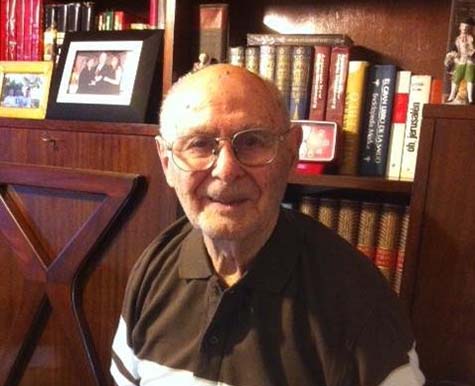
Salomon Birnbaum in Uruguay, January 2021.
As a JDC Archives volunteer, I transcribe data that has been digitized from microfilms of old paper records into JDC’s collections database so people can easily access the material on the web. So, for example, for the record Salomon and Harry Birnbaum, I entered into the JDC database the names of the people, where they were coming from, where they were going to, the date of their departure, the location (city) of the JDC office that had opened their case, and the name of the ship they travelled on.
At different times in history, JDC helped people, usually in the West, get money to friends and relatives, usually in Eastern Europe or Palestine. When working on such remittance lists, we enter the name and address of the person who is submitting money to JDC, the name and address of the person who is to receive the money, and, on some lists the reason for the transaction (illness, poverty, etc.). This is an incredible resource for genealogists since it gives us the name and address of people at both ends of the relationship.
Another such list that I worked on was the Zbąszyń list (access to the full list available here), which contains information about Polish Jews expelled from Germany by the Nazi government into the Polish border town of Zbąszyń, receiving assistance from the JDC in 1938-1939. I noticed that a person listed as the beneficiary’s relative in America was my great aunt, my grandmother’s twin sister. I had never heard of the person in Zbaszyn but questioned the few family members who were old enough to possibly know. My mother’s cousin Sol, who was a survivor and a child in 1938, finally remembered that the family named on the list had returned to Poland. I learned that this family were first cousins to my grandmother, but they did not survive the Holocaust.
When working I often look at the data and wonder how these people’s lives turned out. At times, the lists are pre-Holocaust, and then I am aware that most of the people probably did not survive. But recently, I have been working mostly on lists of survivors, so I wonder what paths they have followed. Occasionally I look up people on Ancestry and Google, and it is amazing how much you can learn about them and their lives. I have found arrivals records, naturalization records, death records, family trees and more. I enjoy seeing that these people, who lived through such horror and trying times, managed to live the rest of their lives in an ordinary fashion, with jobs, careers, and families. I was a history teacher and, I guess, part of me always wants to know more about the whys and how-to’s. I’m glad that I can satisfy that curiosity while doing a good deed for JDC.
Explore your own family history in the JDC Names Index and learn more about its searchable lists.
About the Author
Linda Cantor has been researching her family history for over forty years and has done considerable research on her Lithuanian, Galician, and Volhynian roots. She was the registration chair of the 1999 Annual Conference on Jewish Genealogy and was the president of The Jewish Genealogical Society of NY from 2007 to 2010. She has been volunteering with the JDC Archives since January 2010.
